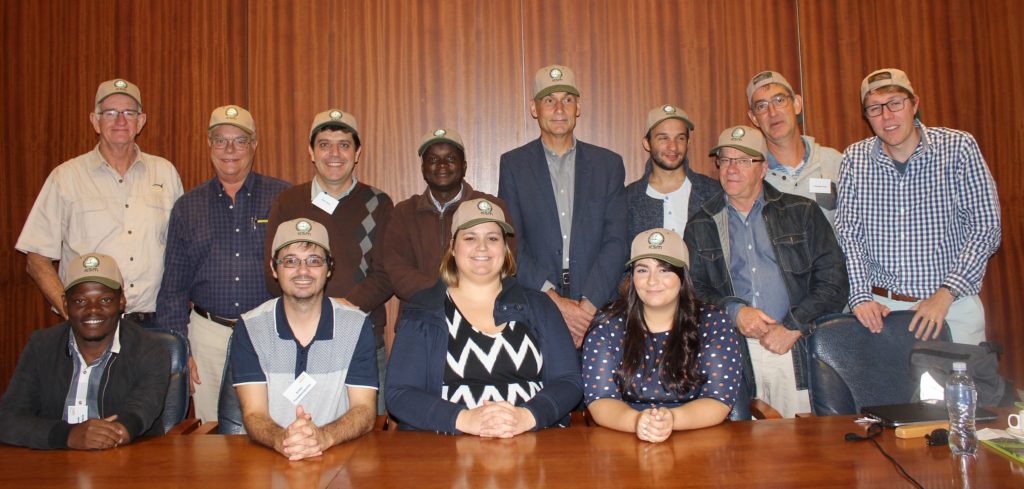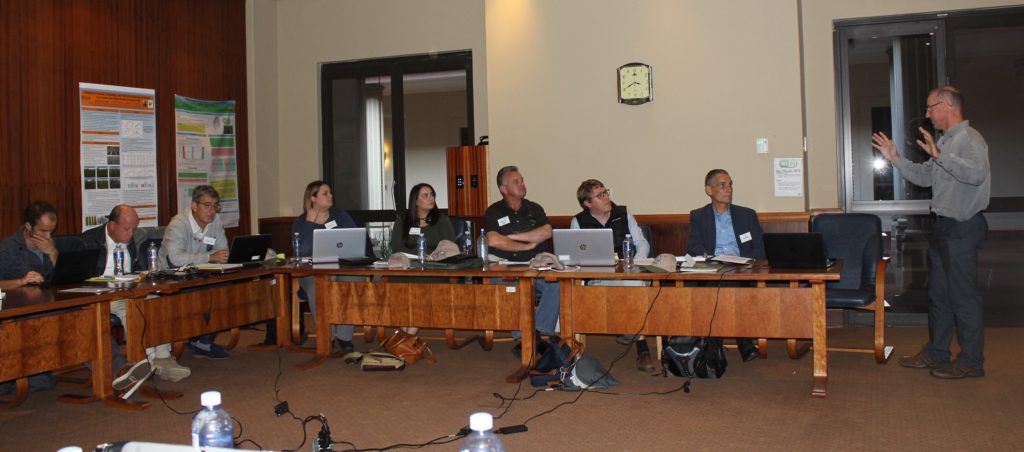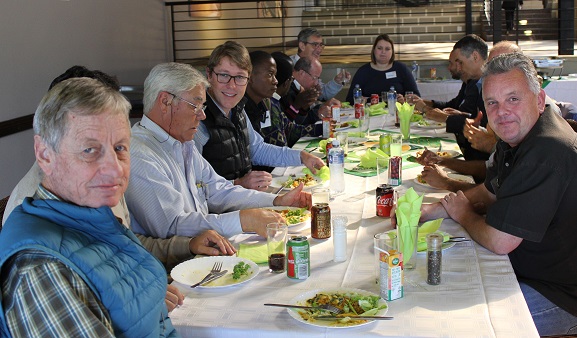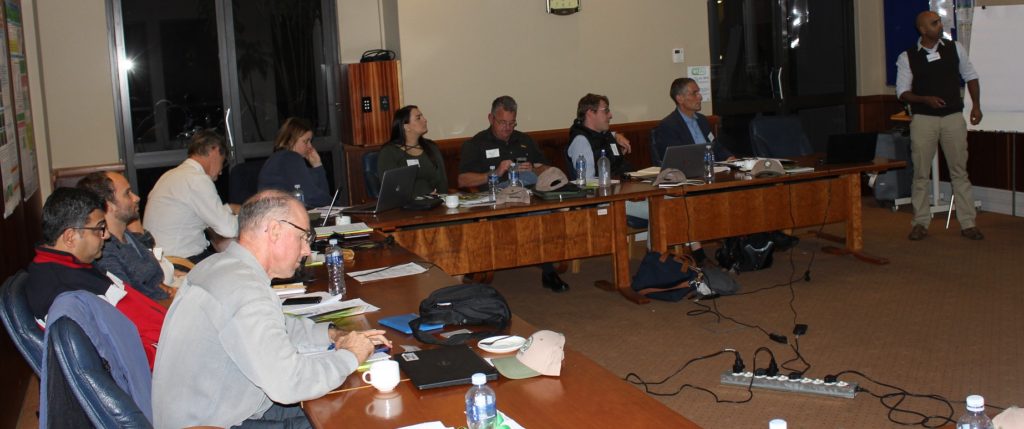 International Consortium for Sugarcane Modelling (ICSM) trait modeling workshop held on 26 and 27 June 2017 in Mount Edgecombe, South Africa
International Consortium for Sugarcane Modelling (ICSM) trait modeling workshop held on 26 and 27 June 2017 in Mount Edgecombe, South Africa
The objective of the International Consortium for Sugarcane Modelling (ICSM) Trait Modelling Workshop was to explore different approaches to the simulation of genetic trait impacts in sugarcane and to plan research actions for developing improved modeling capabilities in this area.
The ICSM is conducting a project to gain a better understanding of the physiological mechanisms underlying the genetic variation in sugarcane response to environmental factors. Experiments have been conducted in Florida, Zimbabwe, South Africa and Reunion Island, to gather important growth analysis data for a common set of diverse cultivars. This, together with other available data, will be used to simulate genotype by environment interactions using different sugarcane models.
Recent advances in genetic trait modeling using DSSAT and APSIM-Sugar were presented by Prof. Hoogenboom of the University of Florida and Dr. Inman-Bamber of James Cook University. Prof. Marin of ESALQ reported on different approaches to model calibration, namely automatic calibration of multiple parameters vs manual stepwise calibration. Ms. Hoffman presented results from her research on estimating trait parameter values for South African cultivars. Dr. Jackson of CSIRO presented a breeder’s perspective on how crop physiology and modeling can assist sugarcane breeding. The ICSM project team reported on the status of the experimental work and the processing of captured data.
Dr. Christina of CIRAD, Mr. Jones of SASRI and Prof. Marin reported on the simulation of the different ICSM experiments by the Mosicas, DSSAT-Canegro and APSIM- Sugar models, and identified a few discrepancies in captured experimental data that need to be resolved. The project modeling team compared the different approaches to modeling key plant processes used in the three models, highlighting key differences.
The workshop gave good direction for progressing the modeling aspects of the project. Efforts should focus on the key physiological traits identified namely radiation use efficiency, transpiration efficiency, plant conductance with reference to gas exchange, and canopy formation. Data processing and storage methods were clarified. The suitability of additional datasets for model development and evaluation were discussed. Topics for two potential scientific publications were also identified.
The workshop was a valuable opportunity for project participants from diverse disciplines to interact and gain a better understanding of the potential value and limitations of using crop models to support sugarcane breeding. This will strengthen the collaboration going forward. More details at https://sasri.sasa.org.za/agronomy/icsm/igepworkshop2017.php



